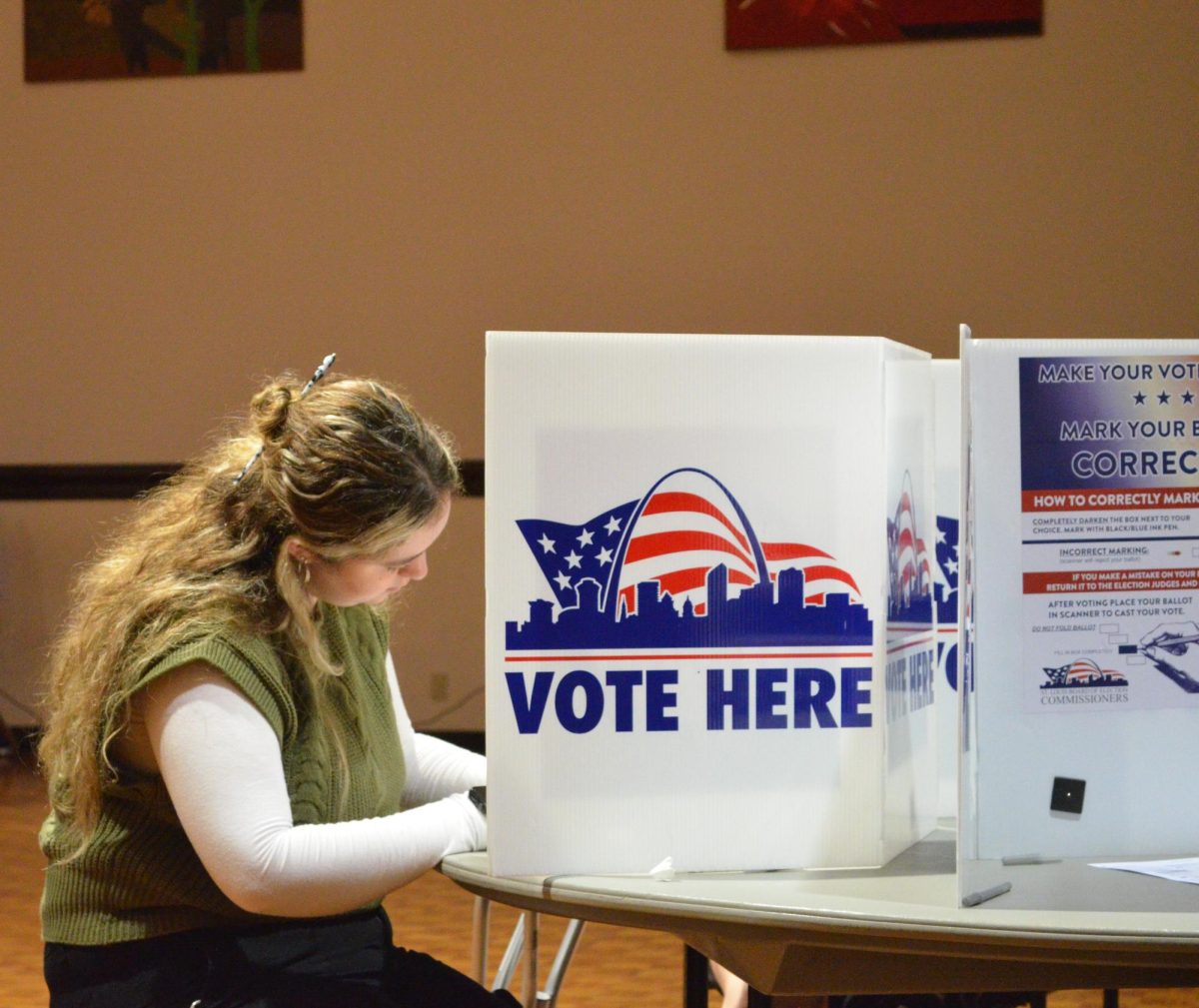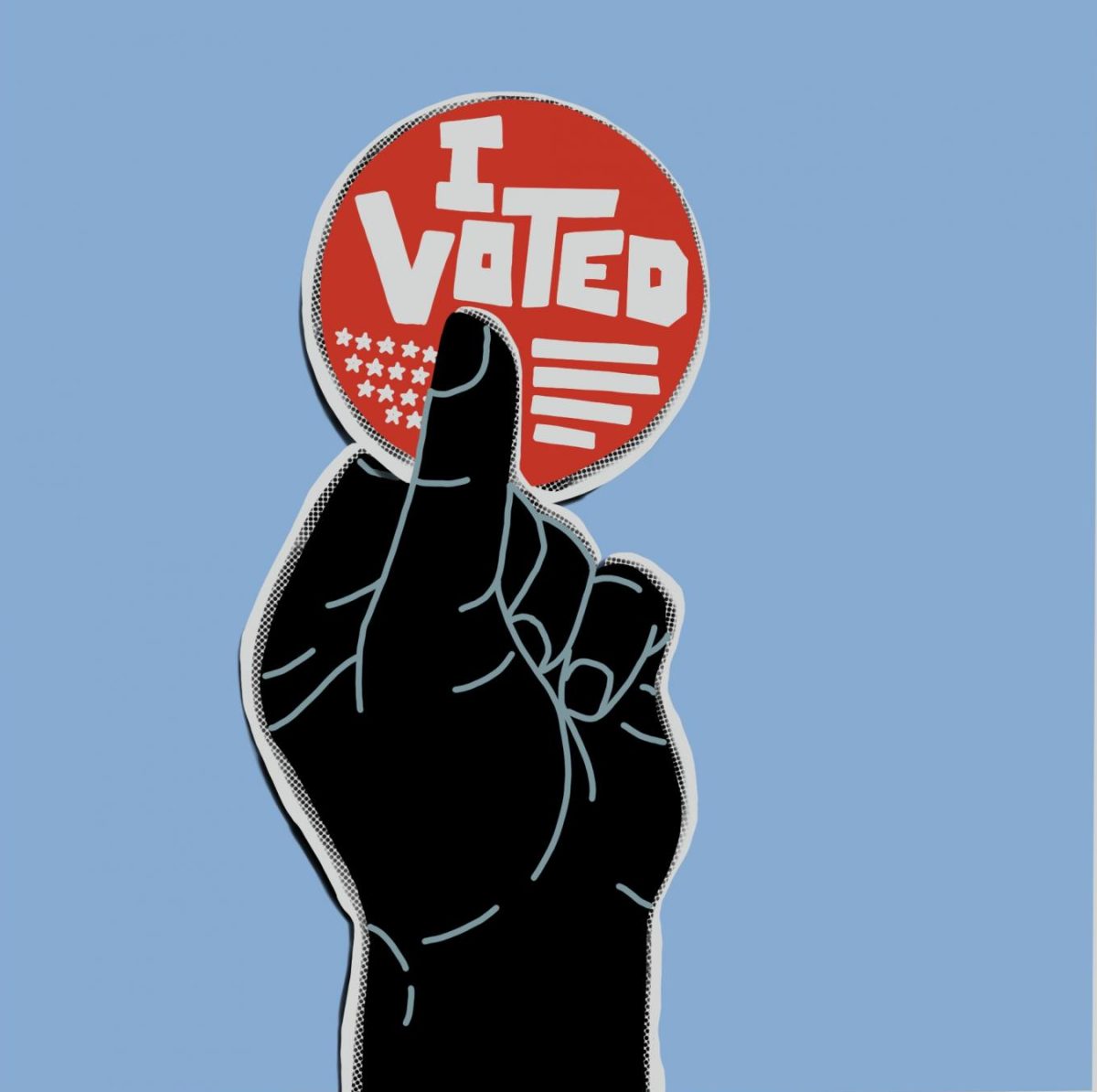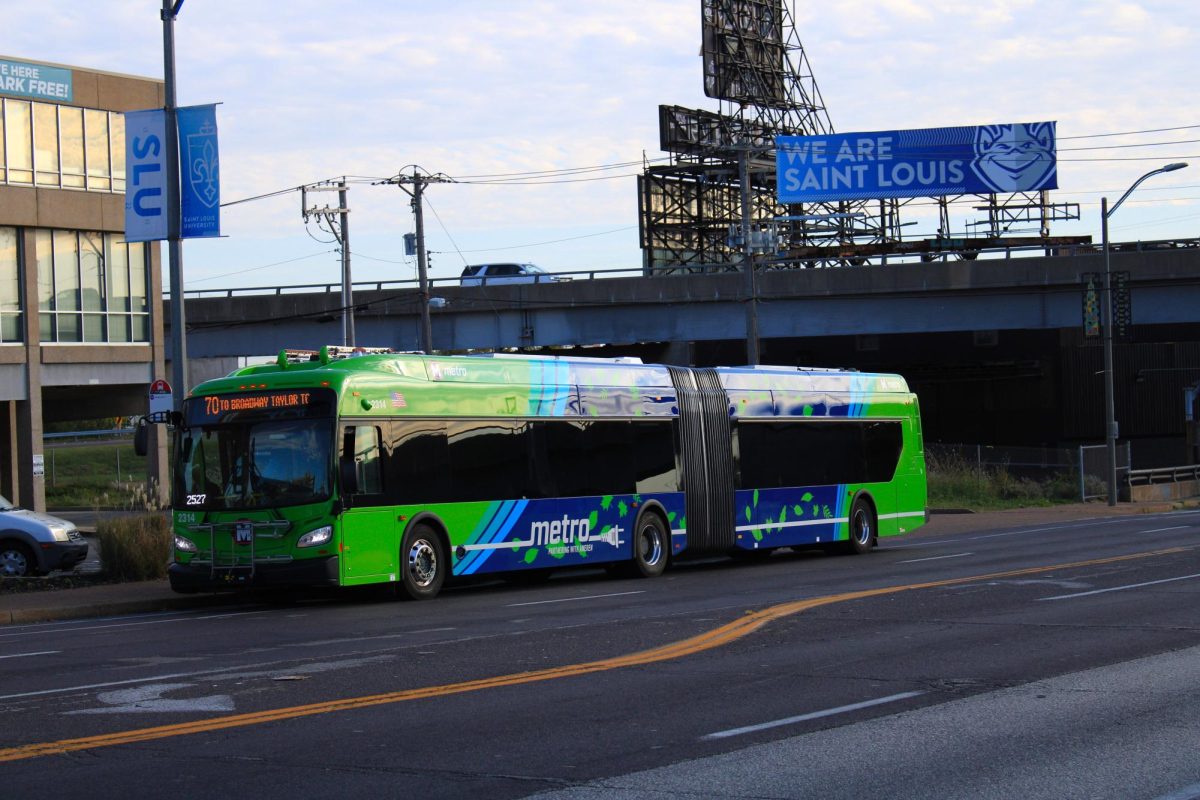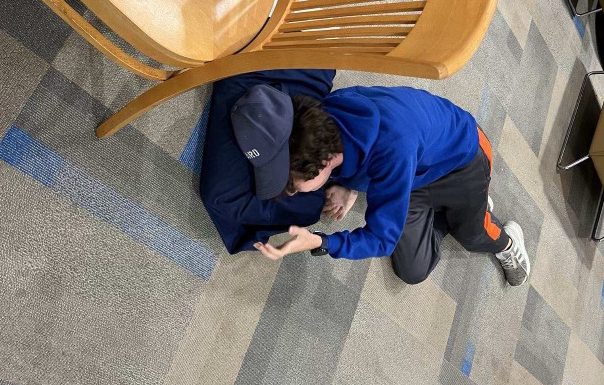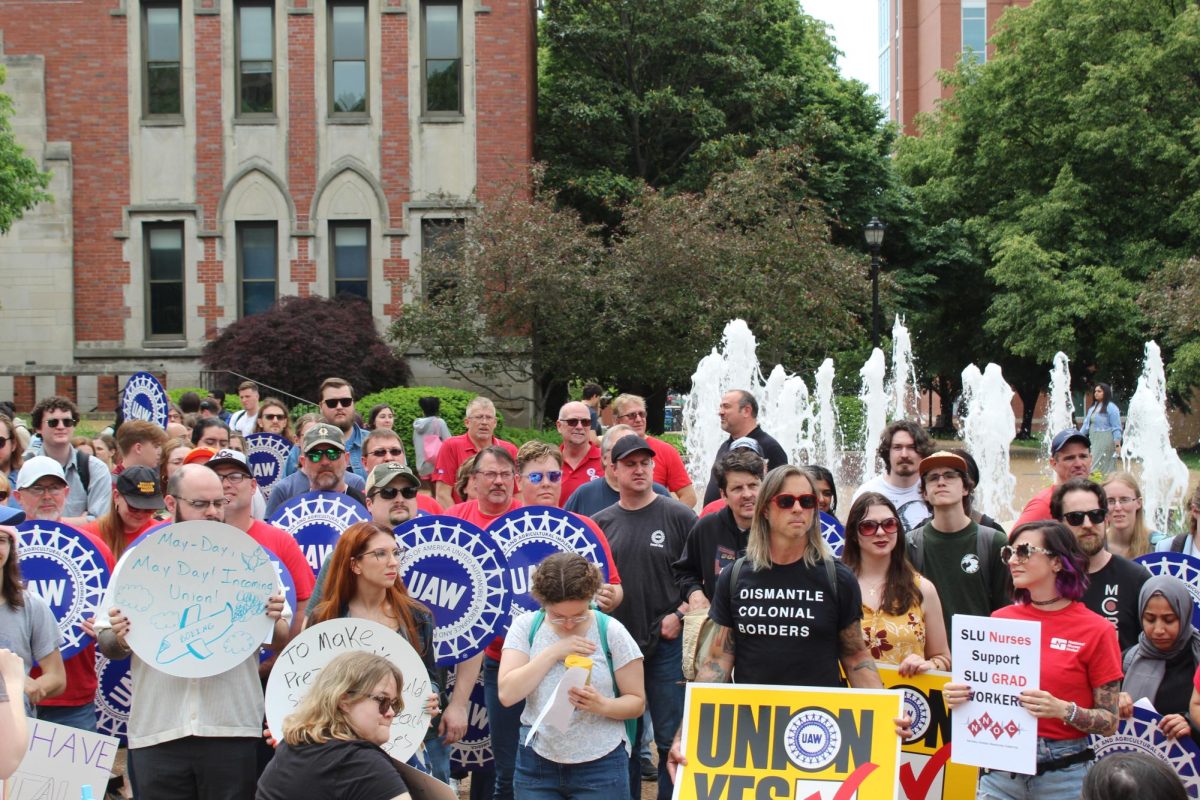“We’d Rather Be Naked Than Wear Sweatshop Clothing,” was the message presented in a publicity photo shoot held Tuesday by United Students Against Sweatshops.
Krispie Kreme donuts and music with a beat set the scene as 26 students gathered-wearing shorts, tank tops and underwear but baring their legs and shoulders-in front of the cameras. The semi-nude photographs were taken as part of the organization’s rally to draw attention to the problem of sweatshop labor and how it could affect Saint Louis University.
Before the photos were taken, students listened as John Carroll, a USAS coordinator, said that several pieces of apparel sold in the University bookstore might be manufactured by underpaid workers in the deplorable working conditions in sweatshop factories. Although the sources of all of the clothing are not known, Carroll said later, the bookstore is unable to claim that all of its apparel is made outside of sweatshops-so far.
The goal of USAS, presenters at the rally announced, has been to encourage SLU to affiliate itself with the Workers’ Rights Consortium (WRC), an independent group that works with laborers at identified sweatshop factories to better their working conditions. If SLU does become affiliated with the organization, Carroll said, the WRC would help to ensure that none of the companies that produce SLU apparel do so with sweatshop labor.
Carroll described a picture of the inside of one of the factories he visited in the Dominican Republic earlier this year: “You can tell this is not a sweatshop because it’s brightly lit, and two people have a lot of space in which to work . and they were playing nice music in the background.”
At a sweatshop factory, “I was not allowed to take pictures,” Carroll said. “[It was] darker, smaller; there were more people and they were making swimsuits for Wal-mart.”
More than 40 students listened to the presentation, then some created posters using facts and quotes, provided by USAS, about sweatshop labor around the world. Later, interested students stripped down to their boxers, tank tops and swimsuits and stood behind the posters to create the look of nudity for the publicity photographs.
“It’s a way of getting people’s attention and a way of getting people to open their eyes,” said freshman participant Laura Brandstetter. “It’s important that USAS is trying to get SLU to join [the WRC] that checks up on clothing companies . I think we’re really behind the times on that.”
According to the USAS presentation, 163 colleges and universities are affiliated with the WRC. Some participating schools are Boston College, Georgetown University, Tulane University and Loyola University Chicago.
“The cost to SLU will be $1,000, exactly, to affiliate with the Workers’ Rights Consortium,” Carroll said during the presentation. He said that the group had been waiting for a specific number with which they could go forward in promoting the affiliation.
The SLU bookstore is already affiliated with another workers’ rights group, the Fair Labor Association, said Kathryn Jonas, another USAS coordinator. USAS appreciates that the bookstore is associated with the FLA, said Jonas. Still, “just the FLA isn’t comprehensive enough,” she said.
The FLA does its work through corporations, said Jonas, so it is funded by the corporations when it takes action to protect those corporations’ laborers.
“This often presents a conflict of interests,” said Jonas.
“But the WRC is funded completely by grants [such as SLU would pay],” she said, because it has “no corporation involvement.” The WRC works at the “grassroots level,” directly with factory workers, she said. As a result, action to promote sweatshop reform is often a “long process” when undertaken through the FLA, “whereas the WRC can take action within three days,” Jonas said.
SLU could benefit from an affiliation with both organizations, she said.
The group has had SLU’s affiliation with the WRC as an objective for years, Jonas said. Two resolutions set forth by USAS to the Student Government Association “have passed so that it [consideration of the affiliation] would go to the Presidential Council Committee,” said USAS Coordinator Christina White, “but it has kind of been lost at that step.”
USAS has made progress toward their goal this year, said Jonas. This semester, the group has been meeting with SGA senators and administrators and giving presentations at meetings of other student groups to gain support for their cause.
After their concerted efforts to raise consciousness and get a petition signed this year, USAS members intend to present a resolution to SGA again starting next semester-but this time, they plan on “pushing it,” Jonas said.
“We have answered real questions. We have all the information we need-we’ve done our research,” she said. “We’ll be around-you won’t get rid of us for a while.”


